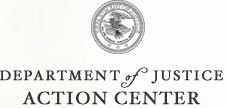


Good morning Chairman Durbin, Ranking Member Graham, and members of the Subcommittee. Thank you for inviting me to testify today about the Department’s extensive efforts to protect the rights of Muslim, Arab, Sikh and South-Asian Americans.
Within hours of the September 11, 2001, terrorist attacks, Muslim Americans, Arab Americans, Sikh Americans and South-Asian Americans nationwide were confronted with a powerful backlash. There was a surge of violence targeting these groups, including threats, assaults, arson, and murder. Two days after the attacks, an individual attempted to set fire to cars in the parking lot of a mosque in Seattle, and shot at worshipers fleeing the mosque. On the same day, an individual set fire to a Pakistani-American restaurant in Utah. The first person killed in post-9/11 violence, Balbir Singh Sodhi, was a Sikh, shot while pumping gas at his gas station in Arizona four days after 9/11. In the three and a half months following the 9/11 attacks, more than 300 federal criminal investigations were initiated in response to similar hate incidents.
There was also an increase in other incidents of discrimination. On the afternoon of September 11, a hotel in Iowa cancelled the reservation that an Arab-American group had made to host a convention – a case that led to a settlement with the Civil Rights Division.
The federal government, under President Bush’s leadership, responded forcefully. The Civil Rights Division’s Criminal Section created a task force to address hate crimes, and the civil litigating sections ramped up their work to combat discrimination in schools, in the workplace and in places of public accommodation.
Our predecessors built a solid foundation. Over the last two years, we have worked to build upon that foundation and expand our efforts to engage with the Muslim, Arab, Sikh and South Asian community and ensure we are fulfilling our responsibility to protect their civil rights.
One of my predecessors who is here today, Alex Acosta, was a leader in the administration’s response to the 9/11 backlash incidents. Among other actions, Dean Acosta established a new position of Special Counsel for Religious Discrimination. Eric Treene has held that position since its creation, and continues to be a key member of our team. Eric and Counsel Mazen Basrawi have ensured that we continue to ramp up our efforts on this front, and play a critical role in fostering our relationships with leaders from these communities.
We have continued to host regular interagency meetings with representatives of Arab-American, Muslim, Sikh and South Asian civic organizations, which give the community what I call “one stop shopping” with the Federal government, so that issues can be addressed by the relevant agency in the room.
During my tenure, we have also made it a priority to vastly expand our outreach. I have met with local Muslim, Arab, Sikh and South Asian leaders around the country, and not just in Dearborn, Los Angeles and Chicago. I have met with the Somali community in Minneapolis, with Muslim leaders in New Haven, in Roanoke and in Murfreesboro, Tennessee. These meetings allow us not only to learn about civil rights violations where they are occurring, but also to build bridges to the community, to built trust and understanding. The Attorney General has made engagement with the Muslim-American and Arab-American communities a top priority, and U.S. Attorneys around the country have been our critical partners in this effort.
Regrettably, while nearly a decade has passed since 9/11, we continue to see a steady stream of violence and discrimination targeting Muslim, Arab, Sikh and South-Asian communities. In each city and town where I have met with leaders of these communities, I have been struck by the sense of fear that pervades their lives – fear of violence, of bigotry and hate. The headwind of intolerance manifests itself in many different ways.
Last month we secured a guilty plea from the 50th defendant charged in a federal criminal case of post 9/11 backlash violence, this one involving a man who set fire to playground equipment at a mosque in Texas. Last year, three men were sentenced for vandalizing and firebombing a mosque in Columbia, Tennessee.
In my outreach, I consistently hear complaints that children face harassment in school, that they are called “terrorists” and told by their peers to “go home,” even though America is their home. At the recent White House Conference on Bullying Prevention, we heard from a number of leaders of the Muslim, Arab, Sikh and South Asian communities about how this problem infects classrooms. We have a growing docket of cases involving harassment of Muslim, Arab, Sikh and South Asian students. In fact, harassment of Muslim students is the largest category of religious discrimination matters that our Educational Opportunities Section handles, and this has been consistently true since 9/11.
For decades, in both Republican and Democratic administrations, the Justice Department has worked to combat religious intolerance in the workplace. We have a number of cases involving individuals facing discrimination at work, with the EEOC reporting a 150 percent increase in complaints of discrimination against Muslims since 9/11. Many cases involve blatant, intentional discrimination, such as the EEOC case filed during the Bush Administration on behalf of two Iranian Muslim employees of a car dealership who were repeatedly harassed by management. Similar cases have been filed during the Obama Administration. We recently filed a case on behalf of a Muslim teacher in Illinois who was forbidden to take unpaid leave for a pilgrimage to Mecca, a requirement of her faith. The case is similar to one filed by the EEOC during the Bush Administration against a Tennessee hospital that refused to grant a Muslim medical technician a 3-week leave of absence for the pilgrimage. No person should have to choose between their faith and their work, and Republican and Democratic administrations alike have fought consistently to vindicate this principle.
We also continue to aggressively enforce the Religious Land Use and Institutionalized Persons Act (RLUIPA) in response to a sharp increase in the number of controversies regarding mosque construction around the country. Of 24 matters opened by the Civil Rights Division since 9/11 under RLUIPA involving mosques, 14 have been opened in the past 10 months. Last year, t he Department filed a friend-of-the-court brief in a Tennessee state court proceeding in which neighbors of a proposed mosque challenged the county’s granting of a building permit. The neighbors argued that Islam is not a religion, and the county was therefore wrong to treat the mosque in the same manner that it would treat a church. The Department’s brief argued that Islam is a religion entitled to protection under the First Amendment, and that RLUIPA requires equal treatment, and the court agreed.
These issues are non-partisan. Our efforts are a reflection of our values as a society. As a nation, we believe strongly and unequivocally in religious freedom, and this belief is embodied in the laws we enforce. Muslim, Arab, Sikh and South Asian Americans contribute to our economy, play a vital role in our civic institutions, serve in our armed forces, and work in and with law enforcement to keep our communities safe.
The headwinds of intolerance these communities face today are no different from the bigotry confronted by groups throughout our history -- by Catholics, by Jews, by newcomers from Ireland and Italy, by Japanese Americans in the wake of World War II, and by countless others who simply wanted to realize the promise of a free and tolerant nation. With each new wave of intolerance, our nation has responded – passing new civil rights laws, striking down old laws that sanctioned discrimination, and eventually recognizing the value of diverse communities and embracing those previously shunned.
Today, we are simply using the long-standing tools in our arsenal to address an emerging challenge that threatens the freedom of individuals who want nothing more than for their families to be accepted in their communities, to live their lives and practice their faith in peace, and to realize the American Dream. We will continue to use every available tool in our law enforcement arsenal to transform this headwind of intolerance into a tailwind of inclusion and opportunity.
Thank you. I look forward to answering any questions.




